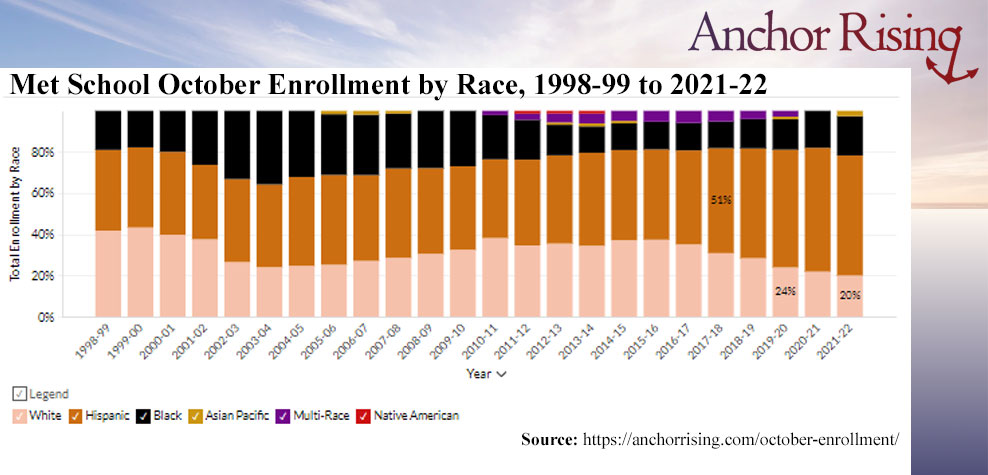As an emboldened Vladimir Putin causes mayhem on the global stage, it’s important to remember how much our own government is harming the prospects of the United States, as if deliberately humbling our country to bring us down:
Upcoming federal oil and gas lease sales will be delayed as the Interior Department figures out how to weigh the climate impact of those sales without using a key tool for measuring those risks, according to a court filing issued on Saturday evening.
The length of the delay was not specified, but it stems from a Feb. 11 decision by a Louisiana federal district court judge that blocked the Biden administration from using the “social cost of carbon” – an interim estimate of $50 per ton of greenhouse gases emitted – to factor the risks of climate change into federal decision-making for permitting, investment and regulatory issues.
This whole thing feels like a deliberate performance between an administration that doesn’t want to allow Americans to be energy independent and judges who are happy to abet the subversion of the laws that permit our freedom.
[Open full post]For the cost of taxes and the cost of living around here, why do Rhode Islanders tolerate this sort of thing?
For the third time in the last four years on national television, the Dunkin’ Donuts Center has served as a national embarrassment, as games have had to be canceled or delayed because the management of the facility can’t maintain the building properly.
Twice before, concerns about players’ safety forced games to be stopped, and in one case, a game had to be shifted to Providence College’s Alumni Hall. The Friars lost that game.
It’s a great analogy. A private organization (with a Catholic foundation) has some amazing success, and our government insider system does nothing but leach and tarnish. Lest you forget, The Dunkin’ Donuts Center is managed by the Convention Center Authority, which is very much part of RI’s insider system.
[Open full post]South Kingstown parent advocate Nicole Solas has been, let’s say, having words with Met School special education teacher Emily Bowden. The back-and-forth is mainly social media snark shooting, so we shouldn’t assume that Bowden’s bombast is evidence of the school’s operation, but she does facilitate an important point that isn’t often made in these arguments.
As far as I can tell, the whole thing started when Bowden chimed in on a Twitter reply thread to a tweet in which Solas calls out a teacher at Blackstone Valley Prep calling parent advocates “mediocre white people.” In the heat of antagonizing people for whom she obvious has no basic respect or sympathy, Bowden posted an image suggesting that nothing individual white people can do will change their white privilege, and she made the following reference to activities in her own school:
Btw, here’s a link to our website. You can find out surveyworks data there- it’s pretty impressive! We are also SUPER proud of the anti-racism work that our entire staff has been engaged in over the past years. I encourage everyone to check us out.
One massive problem with this whole cultural argument is that nobody defines their terms, so it’s important to remember that Bowden does not specify what that “anti-racism work” has entailed or whether it’s been limited to teachers or has roped in the students. Still, her provocation raises a point that’s easy to forget.
Thus far, much of the talk of “equity audits” has been in districts that are majority white (e.g., Portsmouth), where at least advocates can claim they don’t want a minority students to be poorly served by their schools. But as the People’s Data Armory shows, Met School students are 80% non-white:

So, to the extent that the school is making concepts like “anti-racism” and “white privilege” part of its curriculum or the way it interacts with students, it’s targeting a minority of its students, who may already feel as if they don’t belong. Without investigating, this is speculation, but it’s conceivable that a hostile environment created by “anti-racism” helps explain the fact that the number of white students in the school just about halved in less than a decade.
Whatever the specifics at the Met School, these concepts are poison, and when they target children who are a minority in their communities, they are pure abuse.
Featured image from the Rhode Island Department of Education.
[Open full post]Election Year 2022 (2/14/22) from John Carlevale on Vimeo.
Rhode Island GOP Chairperson Sue Cienki discusses a variety of issues and concerns from her political party’s perspective. She also addresses that which should be of concern of all Rhode Islanders regardless of political affiliation. The discussion includes redrawing of voting district boundaries, prison inmate voting, state of emergency powers of governor, unilateral change of mail ballot requirements by Secretary Gorbea and the consequence of “ballot harvesting,” the citizenship requirement for voting, the size of state budget, management of the Joint Commission on Legislative Services (JCLS), and much more.
[Open full post]A very interesting article from Tamara Sacharczyk, of WJAR, puts a spotlight on an aspect of the people’s interaction with government that doesn’t get enough attention: lawsuits:
Hundreds of thousands of dollars have been spent defending state agencies in Rhode Island in recent years, and the NBC 10 I-Team uncovered taxpayers are oftentimes picking up the legal fees.
When a state agency is sued, you’d probably assume the attorney general is defending them for free, but we went through dozens of legal cases, non-tort suits, and appeals from 2016 to fall 2021 and learned that’s not always the case.
In fact, the NBC 10 I-Team found $11 million in tax money has been spent on state legal fees in that time frame.
Government officials don’t really face much downside from spending money on lawyers (and stand to reap a cut back around as political donations). The money doesn’t come out of their pockets, and it’s easy to sell as necessary — even to turn into a weapon with which to hit the people who are bringing the complaints.
It’s win-win. The government steps all over people’s rights. Those people go to court to defend their rights. The government agents spend the people’s money on lawyers and then blame those whose rights it violated in the first place.
Under the worst town solicitor Tiverton has ever had, Michael Marcello, this has become a central operating principle of municipal government. Because he treats them like corporate clients, meaning his job is not to interpret the law accurately so they might better represent the public’s interests, but to help the individuals who hired him do whatever they want, municipal officials turn to him for thin legal cover to completely ignoring what everybody knows to be the local law under our town charter. This leaves residents with no option but to go to court, for which he charges copious amounts of money, thus setting up those officials to malign their political opposition for costing taxpayers so much money.
Meanwhile, it isn’t free for those residents to bring the suits.
In the case of Sacharczyk’s article, I think we’re more likely to see government officials malign, for example, the truckers suing over Raimondo’s tolls than anybody in government face consequences for racking up the invoices with legally questionable policies. To some of us, it seems obvious that, if government officials need intricate legal arguments to determine whether they have the power to do something, they probably shouldn’t do it.
Unfortunately, the political philosophy that has infected our state and local governments is that government should be activist and always pushing its actions farther.
[Open full post]Russia’s invasion of Ukraine — being a strategic attack disrupting a general atmosphere of peaceful exhaustion among European countries — has a cautionary component for analysts. While one can reasonably suggest that this or that factor is playing a role, strong assertions about the motivations and plans of the people involved are best avoided. That’s true especially in this case, when the leadup to invasion wasn’t characterized by an inexorable buildup of hostilities, but an atmosphere more like high-stakes international diplomacy.
In this context, a question from Andrew Morse is well considered. Noting a report from the Meet the Press Twitter account that “Russia is ready for talks with Ukraine, Putin tells Xi,” Andrew asks:
The vassal assures his lord that he has not taken on more than he can handle?
Maybe, maybe not. But drawing analysis back to the point of considering Russia’s relationship with China places on the table a world of extremely complex possibilities. We rightly hear repeated reminders about what a monster Vladimir Putin is, but we don’t adequately account for the possibilities to those of high ambition and low regard for human life.
Slicing off bits of Ukraine may not be Putin’s primary objective. Ukraine might not be central. Russia might not be the primary mover. We don’t know.
However this conflict resolves (hopefully over days rather than weeks or months), the dictators of Russia, China, and elsewhere have gained invaluable information… about Ukraine, about Europe, about the United States, about Joe Biden, about (the encouraging) protest movement within Russia itself, about the strength and loyalty of Russian troops.
This isn’t to say that Putin is some sort of master strategist. Even if he’s a thug playing games, whose plans will come to nothing, he’s been at the top of Russia’s thugocracy for a long time, so one has to credit him with some degree of strategic thinking. Recall Iraq’s long-time dictator, Saddam Hussein, who misled the world into thinking he was better armed than he was. That turned out disastrously for him, but it also prevented us from responding to reality.
The relevance of this point is its effect on our own strategic thinking. Overconfidence about what we understand about what our opposition is doing can lead to concrete moves that respond to decoys and feints while, in any case, providing the opposition information and exposing weaknesses.
While we should, of course, be asking ourselves what we should do if this, that, or the other thing happens, the core question should be what we should in a world in which we can’t possibly know what is going to happen or what our enemies are planning. This approach is implicitly behind the conservative approach to government. Maintain a strong military and the understanding that we’ll use it when necessary. Illustrate the indomitable spirit and competence of our broader society constantly. Project confidence and faith in our own culture.
Basically, build up everything that which American progressives have been doggedly breaking down. Indeed, the current level of success of their efforts may be among the most valuable information our enemies are collecting.
Featured image by Herrald of Landsberg on WikiArt.
[Open full post]Imagine a young Christian Rhode Islander running for office with a team of Republican candidates of the Make America Great Again mold taking to Twitter to say:
The LGBTQs are coming for the Christian community. Who will look out for our best interests, if not ourselves?
Run for office. Support local Christian candidates. Fight back.
Now suppose that candidate worked in the admissions office of a public university. Do you think, perhaps, local progressives would make relentless noise and that at least a few of the major media outlets in the Ocean State would pick up the story? I do. Whether that young Christian would lose his job or be forced to withdraw from the race, or at least offer a public apology, would be a matter of chance having to do with other stories in the news cycle, the fortitude of his immediate employers, and so on. But nobody would be surprised if very powerful people publicly questioned whether the young man could serve all prospective students fairly or represent his university to them.
To be absolutely clear, I don’t think Zakary Pereira should face any personal or professional consequences for his similar Tweet, but I do think the matter worthy of some consideration.
Of course, Pereira isn’t a Christian Republican. He’s a gay progressive Democrat running for state representative with the RI Political Cooperative. And his college admissions job isn’t with a public university, but with Salve Regina, which I’d thought (though I may be mistaken) to be a Catholic institution.
His tweet was in furtherance of far-left, queer Senator Tiara Mack, who had insisted that people in Rhode Island should take positions on culture war issues in Florida because, “not too long from now someone will bring these dangerous pieces of legislation to our state (the ideas are already here).” So, Pereira’s comment was, indeed, a blanket statement about “the Republicans,” not a reference to some specific group relevant to his political race.
For the moment, let’s partition to the side the question of whether it actually is “dangerous” for legislators to require high scrutiny when a school district decides to lie to a child’s parents about his or her experience in school. The immediate question is whether it should matter that, say, a Republican Catholic applicant to Salve Regina from Florida might feel insecure when interacting with Mr. Pereira.
Again, to be clear, the question isn’t a call for Pereira to face consequences. I raise the matter in the hopes that maybe those who read this will consider the effects of common attitudes in political discourse. Those who register as Republicans are people, too, as are parents who worry about establishing in law the principle that government schools can lie to parents about their children’s emotional development if the parents’ religious beliefs differ from the established religion of the government.
The fact that Pereira would rattle off this tweet given both his political aspirations and his employment suggests progressive and even mainstream Democrats lack empathy with people who disagree with them. If anything is dangerous in this complicated stew, that is.
[Open full post]One suspects Russia’s invasion of Ukraine is only the first bomb to crash upon our sense of normalcy. The United States made a colossal error allowing Joe Biden to occupy the White House, and as he’s bumbled his way through the first year of a Presidential term, those whom American power has kept in check have been observing, calculating, and preparing. Twelve months of our worsening condition has been painful, but within the bounds of normal. With Americans’ political hands tied for the better part of another year, and one arm still disabled for an additional two, those evil forces will begin to act.
Don’t let Democrats’ newly warmongering talk about the evil of Vladimir Putin, while true, deceive you into thinking he’s unique in the world. The choice that America made in its foolish complacency was so terrible that it may cost us a century of geopolitical progress, or more. People talk about a “great reset,” but neither those who want it nor those who fear it have applied the concept in practical terms. What is a reset? It’s not simply a new direction. A reset means returning to a prior condition to start again. Well, rewind history to the time before the prior condition that global elites lament and where do you land?
Here’s a more relevant question: What should we do?
Give yourself a little time to get over the initial shock of the changing world. Then: don’t complain; don’t feel overwhelmed; do start changing what you can change.
You can be sure of one thing. The activists, partisans, and die-hards who’ve actively brought this moment about won’t change. They’re deluded and self-focused. No matter what happens, they’ll see it as a development to exploit, if possible, or to manage, if necessary, in their march toward their own goals. They wanted a reset, so they must have expected something like this. Turmoil is in their plan.
Where hope can be found is with those whom the activists have fooled or confused. It will be tempting to try to make these folks see what a mistake they made and acknowledge how bad the activists, partisans, and die-hards are. That may work for some, but it’s not an ideal approach. People don’t like to admit error, so if you insist that they do, even if only to themselves, you make the process of changing their minds and correcting their direction more difficult. Moreover, their choice isn’t truly between angry, warring factions, and we should avoid making it seem as if that’s the case.
Hope can also be found among those who have not been fooled, but who have been largely idle, and here we find not only a great wellspring of power and energy, but also the silver lining of facing such a massive and pervasive challenge. Almost any increase in effort applied to almost any aspect of the problem can make a difference.
Our country didn’t put Biden in the White House out of nowhere. That step is representative of long years of decay. Years of work by Democrats and their allies in every institution from government to media to schools, and beyond, made this situation possible. Therefore, while immediate action is necessary, it will neither reclaim nor destroy all of that socio-political infrastructure.
When it comes to immediate action, each of us can only do so much (assuming there aren’t any powerhouses in my audience I don’t know about). So, focus where you can make a difference.
Getting somebody sane (and with a stiff backbone… that will be absolutely crucial) elected to your local school committee will make a long-term difference. Contributing to the growth of alternative media structures will, too. One of the most significant, albeit indirect and subtle, actions you can take is to build a sense of community, both within your town and with people who share your mission. Reach out. Get together. Make life enjoyable and attractive. (The counter to hate is love; the counter to divisiveness is unification; and the counter alienation is welcome.)
Finally, in times that get your blood boiling, one important lesson is easy to forget: Do all that you can, but don’t do more than you can. We have to deal with crises at our doorsteps, but when a crisis passes, the biggest risk is burning out or losing momentum. Set your sights on that time in the future when the reset, itself, has been undone and the malign intentions of those who brought it about have been so thoroughly thwarted that our world is actually better off for having corrected their error.
Featured image by Theodore Gericault on WikiArt.
[Open full post]Whether I’ve been failing or succeeding, all these years, I’ll leave to others to judge, but one of my core objectives has always been to foster the habit of making the sorts of connections that are too often covered over for political reasons. Let’s look at a big one.
Perhaps with the mixed motivation of appealing to the environmentalist sentiments of his party’s base, creating opportunities for those who understand the complex investment schemes around green energy mandates, and lining up more construction projects for the labor unions with which he spent his career, Senate President Dominick Ruggerio wants to accelerate Rhode Island’s rush toward self-imposed energy limitations:
Senate President Dominick Ruggerio reintroduced legislation this week in hopes of strengthening Rhode Island’s commitment to renewable energy.
The proposed bill seeks to gradually increase the amount of electricity generated from renewable sources, with the goal of hitting 100% by 2030.
Here is the connection that nobody is making, but everybody should, from Sofie Rudin of The Public’s Radio:
In the last four years, more than a thousand acres of Rhode Island forest have been cleared for solar, according to the Rhode Island Department of Environmental Management. That accounts for more than two thirds of forested land that was cleared for development. …
“For a relatively large amount of forest loss to occur to an industry that is essentially termed and represented as green energy and renewable energy, it really was surprising to me,” [Clark University Professor John Rogan] said.
Rhode Island forests pull about 500,000 metric tons of carbon dioxide out of the atmosphere each year, according to a state Department of Environmental Management report – the equivalent of taking more than 100,000 cars off the road.
The panic fostered by the environmental movement opens the door to both honest miscalculations and cynical manipulation of the political process to make or increase special interests’ fortunes.
And it doesn’t stop with deforestation. Increased energy prices correlate with increased economic hardship. Increased economic hardship correlates with less voluntary concern about the natural environment. Similarly, restrictions to our sources of energy leads to less reliability, which leads to more installation and use of gasoline-powered home power generators.
The solution of those whose advocacy produced these unwanted consequences will inevitably proceed to seek an unending series of patches on the problems, thus creating more complexity, more corruption, and more consequences. Instead, we all should pause and reevaluate our goals and the underlying challenges. Then, we can figure out how to change things for the benefit of all without coercion.
Such an approach is unlikely, however, if we don’t first admit that our government has been coopted as a tool to focus power and promote ideology for and of the Left.
Featured image by Nautilus Solar.
[Open full post]Well, we have to thank Rhode Island Republicans for trying:
The Rhode Island Senate Republican Caucus is proposing the state eliminate gas tax for the remainder of the year.
“We want to direct the influx in tax revenue back to residents and provide relief from the crushing pain at the pump,” Senate Minority Whip Jessica de la Cruz said. “Our state budget is benefiting from inflation as the gas tax brings in new, unexpected revenue. Meanwhile, the people of Rhode Island are struggling to balance their budgets with no relief in sight.”
Why can’t these ideas get more traction around here?
[Open full post]








